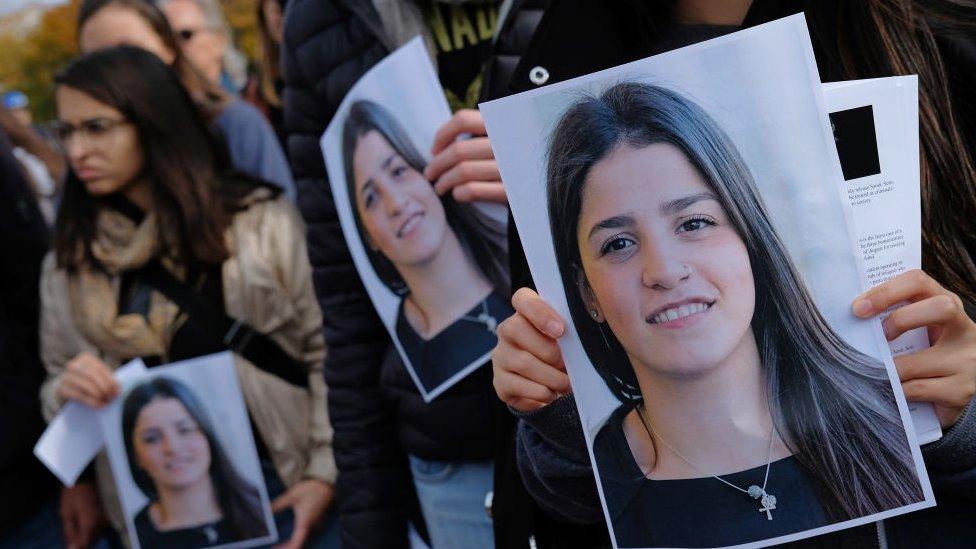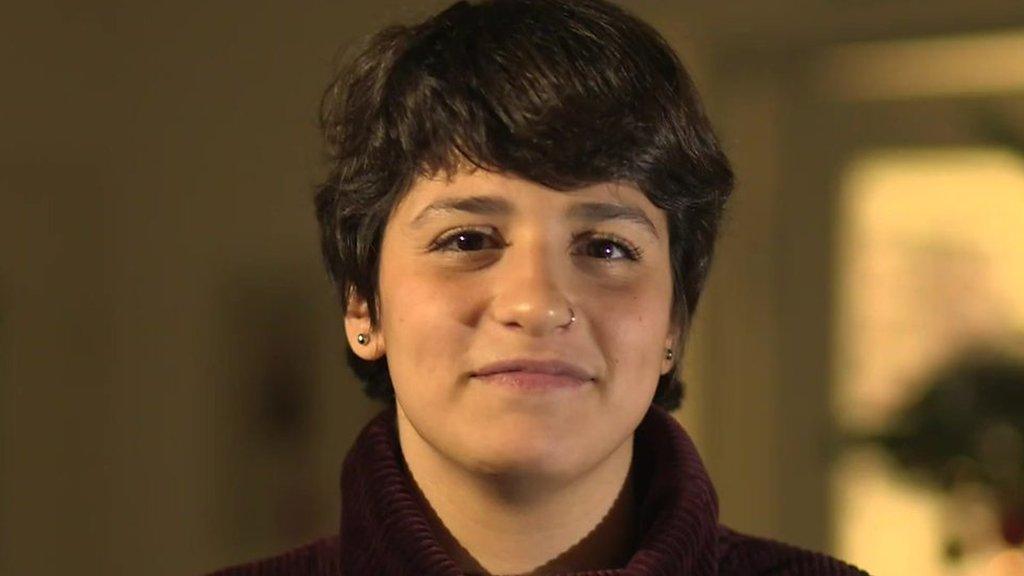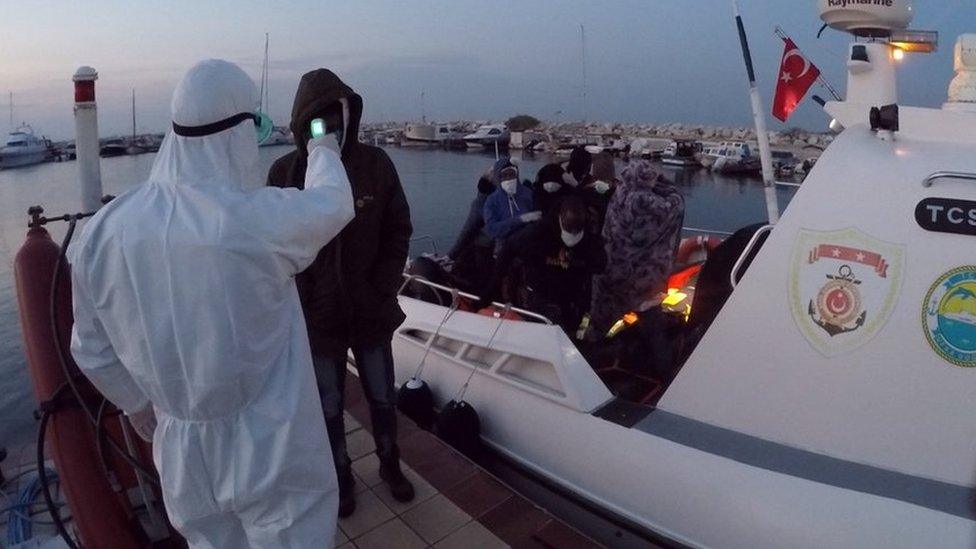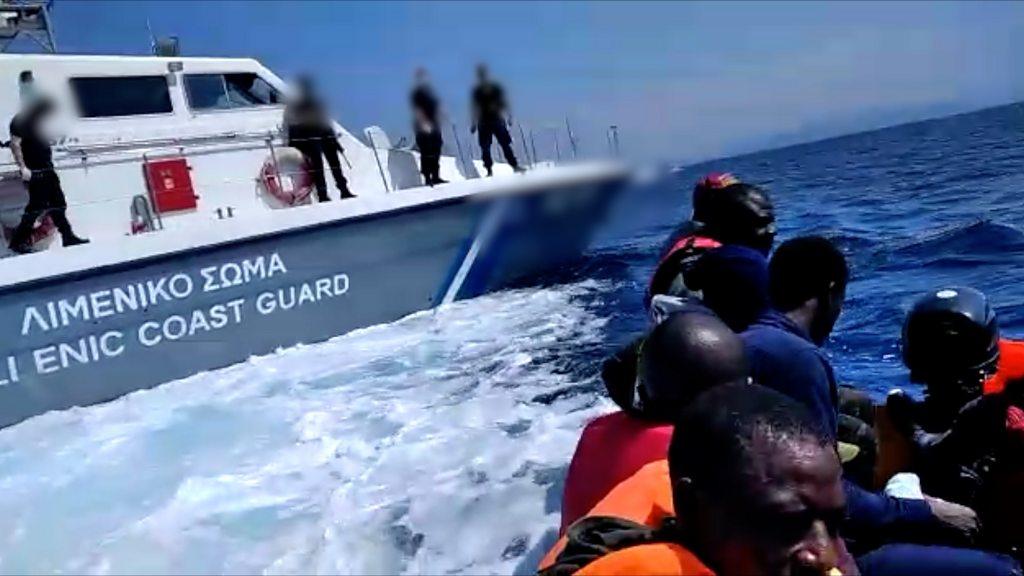Greek trial of 24 rescuers who saved migrants in Med begins
- Published

Sarah Mardini is one of the 24 on trial and rescued people on board the boat she came to Greece on
A group of 24 volunteers have gone on trial on the Greek island of Lesbos more than four years after they were arrested for carrying out migrant rescue missions off Greece.
Their case was denounced in a European Parliament report as Europe's "largest case of criminalisation of solidarity".
Among the defendants accused of a string of misdemeanours is refugee and swimmer Sarah Mardini.
A movie recently told the story of how she escaped with her sister from Syria.
The volunteers were initially detained in 2018 for several months on suspicion of human trafficking, but the charges facing the group in Mytilini on Tuesday involved espionage, illegal access to state communications, money laundering and assisting criminal activity.
Police said in 2018 that the volunteers had collected information about refugee flows from the Turkish coast to the Greek islands of Lesbos and Samos, and provided direct assistance to organised trafficking groups.
Ms Mardini was not in court for the hearing as she is barred from returning to Greece, but fellow defendant and experienced diver Seán Binder told reporters that the important thing was to ensure that the rule of law would be observed: "We need to ensure that search and rescue is permitted, we need to ensure that people have the right to seek asylum."
The two volunteers had joined a group called Emergency Response Centre International, which has since been disbanded. The 2021 European Parliament report pointed out that Sarah Mardini's first rescue had taken place in 2015, external when she and her sister Yusra helped save others on board the boat they were travelling on.
Yusra Mardini went on to take part in the Rio Olympics as part of a refugee team and their story featured in the 2022 Netflix drama The Swimmers.
Sarah Mardini: 'I am not a people smuggler’
Their escape came at the height of the influx of migrants and refugees into Greece which prompted an EU deal with Turkey to close off the sea crossing. Greece has also denied allegations in recent years that it has forcibly sent dinghies back to Turkey in so-called pushbacks.
Sarah Mardini told the BBC after her release in 2018 that her arrest had come as a shock as her group had wanted to help refugees with medical assistance, water and a blanket when they arrived in Greece.
Seán Binder said the accusations of espionage and using encrypted communications involved nothing more than messaging via WhatsApp and listening to maritime radio.
Other members of the group include volunteer lifeguard Nasos Karakitsos and retired Dutch national Pieter Wittenberg, who told Amnesty International that he faced 20-25 years in jail if convicted for standing on the beach as onlookers.
Their trial comes hard on the heels of the case of a Somali migrant called Mohamed Abdi jailed for 142 years for people-smuggling after saving more than 30 lives. Abdi said he had guided the migrant dinghy to shore after it was abandoned by a Turkish trafficker in 2020.
The court in Mytilini ruled on Monday that his sentence should be commuted and ordered his release for time served in jail.
Dozens of NGOs have criticised the Lesbos trial, and a group of European Parliament members have signed a letter calling on the government in Athens to drop the case.
The trial opened on Tuesday and was adjourned until Friday.
Related topics
- Published12 December 2018

- Published12 December 2020

- Published13 July 2021
